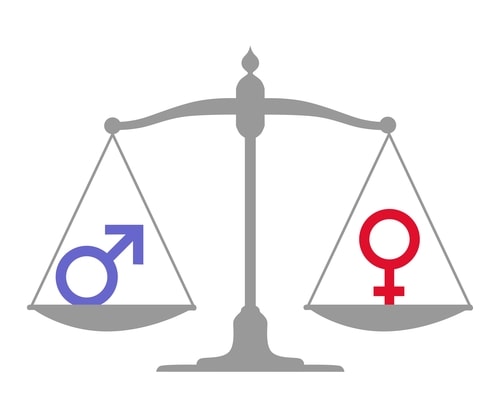Saudi Arabia's New Personal Status Law
 Saudi Arabia celebrated another milestone in its history of legal reform on 21 February 2025 with the release of the Implementing Regulations of the Personal Status Law (PSL) into the Official Gazette (Umm Al-Qura). The much-awaited regulations, endorsed by Crown Prince Mohammed bin Salman, complement the groundbreaking Personal Status Law enacted in March 2022, which governs personal and family affairs like marriage, divorce, guardianship, and custody.
Saudi Arabia celebrated another milestone in its history of legal reform on 21 February 2025 with the release of the Implementing Regulations of the Personal Status Law (PSL) into the Official Gazette (Umm Al-Qura). The much-awaited regulations, endorsed by Crown Prince Mohammed bin Salman, complement the groundbreaking Personal Status Law enacted in March 2022, which governs personal and family affairs like marriage, divorce, guardianship, and custody.
With 41 new articles, the laws seek to increase legal clarity, encourage family stability, and protect individual rights, especially those of women. The most recent reforms further limit aspects of male guardianship, consolidate women's rights in marriage breakdown and custody, and update long-standing personal status practices. Yet, although these developments are essential steps forward, they also highlight the challenges of reconciling social tradition with legal modernisation. The full impact of these regulations remains contingent on their judicial application, which will determine whether they deliver substantive change or merely codify incremental reforms.
Redefining Male Guardianship
Traditionally, Saudi Arabia's male guardianship system (Nizam Al-Wilayah) has been the foundation of its socio-legal framework, strictly limiting women's independence. Based on extremely conservative mores, the system made women secure the permission of a male guardian, usually a father, brother, or husband, for essential life choices such as marriage, travel, education, and divorce.
The 2022 codification of the Personal Status Law had already imposed significant curbs on this system, specifically diminishing male control over women's marital decisions. But male permission remained ingrained in significant processes and left women open to abuse of guardianship authority.
The 2025 Implementing Regulations move this even further, especially through Articles 12 to 15, which directly address instances of 'Adhl' where a guardian unjustly bars a woman from marrying an appropriate suitor.
Major Provisions regarding Guardianship
i. Article 12
Authorizes a woman to transfer guardianship without the active suitor, a significant deviation from previous customs that had made court proceedings dependent on a marriage proposal.
ii. Article 13
Applies the right of guardianship transfer to other female dependents of the same guardian if his ineligibility or neglect is proven.
iii. Article 15
Entitles the woman to ask for transfer of guardianship to a more appropriate guardian in case her current guardian is not just.
iv. Article 14
Ironically permits the initial, unfair guardian to govern the marriage contract if the woman agrees, which is a stipulation that causes doubts regarding complete elimination of male authority.
 This final point poses a theoretical conundrum. If a guardian has been deemed to be unfair, why preserve his role. For some legal commentators, this is evidence of a calculated trade-off pursuing an appearance of social harmony while moving incrementally towards a transfer of authority. Others see it as indicating an institutional reticence about completely eliminating the guardianship system. As is often the case with many things under the PSL reforms, much turns on how courts apply and interpret these provisions in reality.
This final point poses a theoretical conundrum. If a guardian has been deemed to be unfair, why preserve his role. For some legal commentators, this is evidence of a calculated trade-off pursuing an appearance of social harmony while moving incrementally towards a transfer of authority. Others see it as indicating an institutional reticence about completely eliminating the guardianship system. As is often the case with many things under the PSL reforms, much turns on how courts apply and interpret these provisions in reality.
Extending Women's Rights in Divorce and Marital Breakdown
The Implementing Regulations bring sweeping reforms to the complicated field of divorce, long a man-dominated domain. In Saudi family law, there are three principal types of marital breakdown:
i. Talaq – unilateral divorce by the husband.
ii. Khul – divorce initiated by the wife but with the need for the husband's agreement and repayment of her dowry (mahr).
iii. Faskh – judicial divorce.
The new law seeks to rebalance the power relations in these mechanisms, specifically by increasing the access of women to faskh and improving the evidentiary requirements needed to prove marital harm.
Notable Provisions on Divorce:
i. Article 26
Provides for a woman's right to request faskh not to be waived by delay, maintaining her legal recourse irrespective of when she makes the request.
ii. Article 28
Facilitates judicial nullity even in the event that the husband declines to consent to divorce or khul', given that the wife is unable to meet marital expectations. Nonetheless, she should surrender the dowry unless the fault lies with the husband.
iii. Article 30
Implements a complicated policy on fault-based dissolution: If fault is attributed to the husband, the wife is entitled to obtain a divorce free of charge. If the wife is found responsible for the deterioration of the marriage, she has to refund the dowry.
These laws represent a forward-thinking move by formally inserting judicial power into marital disagreements, granting courts more leeway to safeguard women's interests, especially when husbands are obstinate about giving them a divorce.
Dealing with Proof of Harm:
One of the most important hurdles women have long encountered in divorce proceedings is the burden of proof. Proving harm adequate to terminate a marriage tended to necessitate rigorous evidence, which was hard for many women to provide.
i. Article 27 expands the proof foundation, allowing socially recognized statements such as witness accounts within the community of the couple to be used as evidence of harm. This may reduce the bar for women to leave harmful marriages, but its dependence upon public perception may still be a hindrance in conservative environments.
Strengthening Child Custody Rights
Another significant development is the strengthening of the rights of maternal custody. Custody disputes in Saudi Arabia have traditionally defaulted in favor of the father once the child is of a certain age, which is in line with patriarchal family values.
• Article 33 provides that mothers continue to have custody of children under the age of two, even where they remarry a person other than the father. This is an important protection, especially in a society in which remarriage has historically compromised maternal custody.
Although modest, this provision indicates an increasing legal recognition of the mother as a primary caregiver to young children early in life and brings the law closer to the principles of child welfare.
Tradition vs Modernisation
These reforms are not happening in a vacuum. They are intricately linked to Saudi Arabia's Vision 2030, the ambitious national strategy for economic diversification, social progress, and legal certainty. By modernising personal status legislation, Saudi Arabia is indicating its intention to develop a more stable legal framework, especially appealing to foreign investors and international watchers with an interest in human rights.
Still, as critics like Asifa Quraishi-Landes and Amira Sonbol have long argued, sharia-based legal reforms tend to mirror state political agendas as much as, if not more than, popular demands for enhancements in rights. For Saudi Arabia, the reforms could have the dual aim of enhancing women's rights while further entrenching the state as the exclusive driver of social change.
 Conclusion
Conclusion
The Implementing Regulations of the Personal Status Law are a significant follow-up to Saudi Arabia's recent legal reform, particularly regarding women's rights in marriage, divorce, and custody. In limiting male guardianship, increasing judicial divorce provisions, and establishing clearer custody rights, the regulations provide significant foundation for increased legal equality. However, substantial challenges remain. With many provisions contingent on judicial discretion, their success hinges on how judges interpret and apply these new laws. Social attitudes, too, will shape their practical impact, as legal reforms interact with deeply entrenched cultural norms.
In the years ahead, close observation and scrutiny will be necessary to determine if these reforms simply enshrine incremental progress or actually mark a structural shift in gender relations and family law in the Kingdom. For the moment, they are a testament to the subtle balancing act of modernisation in tradition and the continued evolution of Saudi Arabia's legal identity.
 English
English
 عربي
عربي Русский
Русский 官话
官话 português
português
 Türk
Türk 








